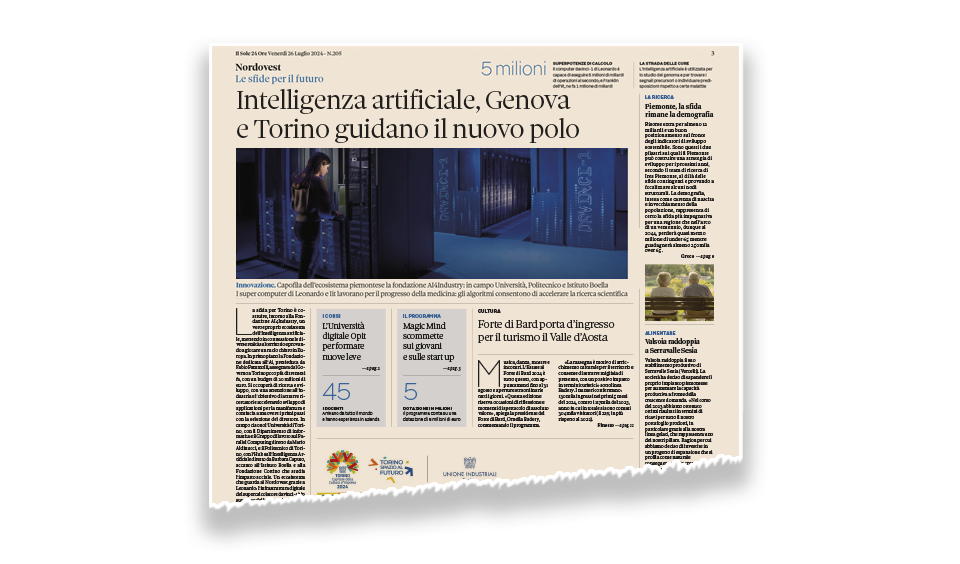In the current scenario, characterised by continuous and rapid developments in technology, artificial intelligence (AI) represents a resource capable of contributing to the progress of science and medicine at an unprecedented rate. Leonardo's davinci-1 supercomputer is working in this direction, as described in the article “Iit and Leonardo computers for the progress of medicine” by Raoul de Forcade.
Genoa's High Performance Computing (HPC) is capable of performing 5 million billion operations per second. As explained by Carlo Cavazzoni, Leonardo's Head of Digital Infrastructures, “We were the first to start, and we are now working on upgrading davinci-1, to bring it up to the ability to do billions of operations per second”. Among the initiatives using the potential of HPC in the medical field is the Sinisa project, dedicated to the study of haematoncological and cardiovascular diseases, in which AI analyses genomic and lifestyle data to identify predispositions.
In Piedmont, the digital infrastructure of davinci-1 supports the processing of huge amounts of data for the analyses carried out in Leonardo Labs: this is the technological challenge of virtual prototyping, which takes place within Leonardo's PC2Lab (Product Capability and Concept Laboratory) in Turin. As explained in the article “Artificial intelligence, Turin leading the new ecosystem” by Filomena Greco, the Piedmontese capital, together with Genoa, is leading the new AI ecosystem in Italy.


